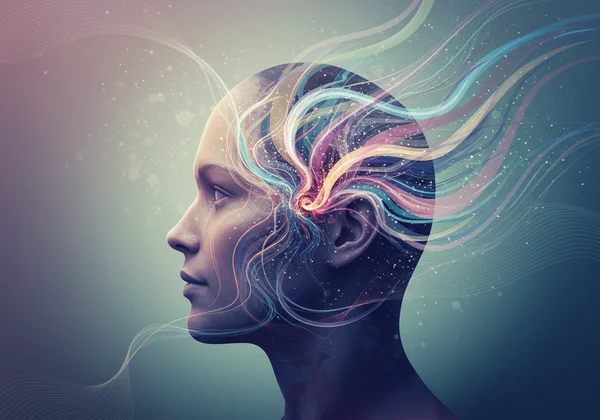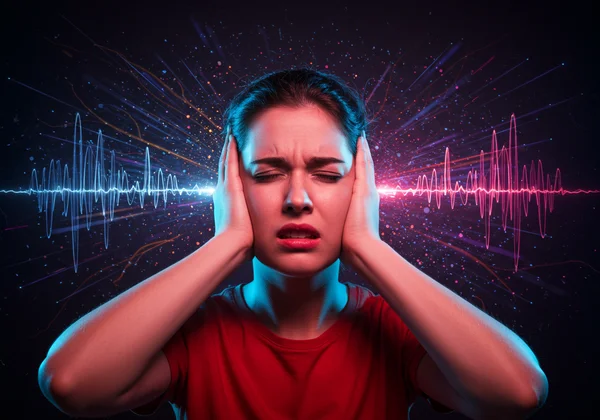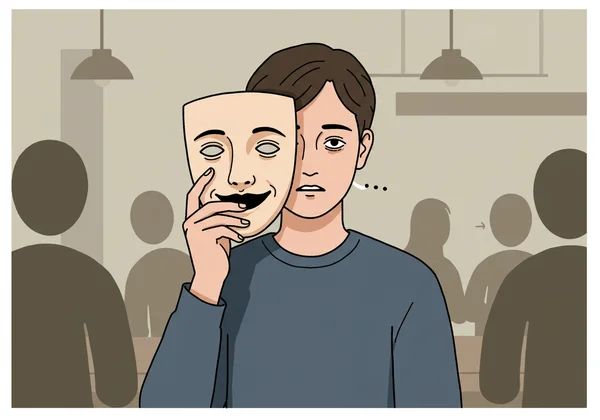Autistic Test for Adults: Understanding Autism Signs and Traits
Feeling like you've always been operating on a slightly different wavelength than everyone else? Many adults spend years, or even decades, with a quiet sense that they don't quite fit in, without ever having the words to explain why. If you find yourself asking, "How do I know if I'm autistic?", you've started a powerful journey of self-discovery. This guide explores the common autism signs in adults, moving beyond outdated stereotypes to offer relatable insights that can help you understand your unique experience.
Autism is a spectrum, meaning it presents differently in every single person. Recognizing these traits in yourself isn't about fitting into a box; it's about finding a framework that might finally make sense of your life's journey. It's about empowerment. If you're ready to explore this further, a preliminary screening can be a helpful first step. You can try our free tool today to begin your exploration in a private, supportive space.

Disclaimer: This article is for informational purposes only. The information provided is not a substitute for professional medical advice, diagnosis, or treatment. The tests on this site are screening tools designed to provide a starting point for self-exploration and should not be considered a formal diagnosis. Always seek the advice of a qualified health provider with any questions you may have regarding a medical condition.
Recognizing Adult Autistic Traits Beyond Stereotypes
When many people think of autism, they often picture outdated or stereotypical images that rarely reflect the reality of autistic adults. Autism in adulthood is nuanced and deeply personal. It's less about a checklist of external behaviors and more about an internal experience—a different way of processing the world. Understanding the core areas of these differences is the first step.
Social Communication and Interaction Differences
One of the most common areas of difference for autistic adults involves social interaction. This isn't about being "anti-social" or "unfriendly." Rather, it's about navigating a social world that often feels based on unwritten rules that others seem to know instinctively.
You might recognize this as:
- Finding small talk confusing or exhausting.
- Preferring deep, focused conversations on topics that interest you.
- Feeling like you're manually "calculating" social responses or facial expressions.
- Struggling to interpret non-verbal cues like body language or tone of voice.
- Having a direct or blunt communication style that can be misinterpreted by others.
Repetitive Behaviors and Restricted Interests
This area reflects another core aspect of the autistic experience, yet it's often misunderstood. Repetitive behaviors, like fidgeting, pacing, or hand-flapping (often called stimming), are not meaningless habits. They are often vital self-regulation tools used to manage sensory input, express emotions, or calm anxiety.
Similarly, having deep, passionate, and highly focused interests (sometimes called "special interests") is a hallmark of the autistic mind. These aren't just hobbies; they are sources of immense joy, expertise, and comfort. Whether it's historical fashion, train schedules, a specific video game, or a field of science, this ability to deep-dive is a significant part of autistic identity.
Sensory Sensitivities and Preferences
Do certain lights feel too bright? Do the seams in your socks feel unbearable? The autistic brain often processes sensory information differently. This can lead to being either hypersensitive (over-responsive) or hyposensitive (under-responsive) to sensory input.
Hypersensitivity might look like being easily overwhelmed by loud noises, strong smells, or certain food textures, leading to sensory overload. Hyposensitivity, on the other hand, might involve seeking out strong sensations, like enjoying very spicy food, loud music, or deep pressure hugs.

Common "Am I Autistic?" Symptoms in Daily Life
Recognizing the clinical traits is one thing, but how do they show up in your day-to-day life? Many people questioning if they are autistic see these patterns reflected in their work, friendships, and internal world. If you're wondering about your own experiences, taking a confidential autistic traits test can be an insightful exercise.
Navigating Social Situations and Friendships
For many autistic adults, social energy is a finite resource. You might enjoy spending time with friends but need significant alone time afterward to recover. This is often described as a "social hangover." You might also find that you connect more deeply with a small number of people who share your interests, rather than maintaining a large circle of casual acquaintances. You may have often been told you're just socially awkward, but it feels deeper than that.
Unique Ways of Thinking and Processing Information
The autistic mind is often characterized by a unique cognitive style. This can be a tremendous strength. Many autistic people are highly logical, have a strong sense of justice, and are excellent at pattern recognition. You might find that you have an incredible memory for details related to your interests or that you approach problems from a unique, out-of-the-box perspective. This different way of processing is a core part of neurodiversity.

Executive Function Challenges and Routines
Executive function refers to the mental processes that help us plan, organize, initiate tasks, and manage our time. Many autistic adults experience challenges in this area. This might manifest as difficulty starting a project (even if you want to do it), struggling to switch between tasks, or feeling overwhelmed by multi-step instructions. To cope, you might rely heavily on routines and predictability, feeling anxious or distressed when plans change unexpectedly.
The Journey of Undiagnosed Autism & Self-Discovery
For many adults, especially women and those assigned female at birth, autism goes unidentified for years. This is often because they become masters of camouflaging their traits to fit in with neurotypical expectations. The journey of discovering you might be autistic in adulthood is one of re-contextualizing your entire life.
Understanding the Impact of Masking (Camouflaging)
Masking is the conscious or subconscious process of suppressing autistic traits (like stimming) and performing neurotypical behaviors (like forcing eye contact) to avoid negative attention. While it can be a useful survival strategy, it is incredibly draining. Chronic masking is a leading cause of autistic burnout—a state of profound exhaustion that impacts every area of life. Recognizing your own masking is often a key moment in the self-discovery process.

Finding Community and Resources for Autistic Adults
Discovering you might be autistic can feel isolating at first, but it opens the door to a vibrant and supportive community. Connecting with other autistic people online or in person can be life-changing. You'll find a neurodiversity community of people who share similar experiences, validate your feelings, and celebrate autistic identity. This sense of belonging can powerfully counteract a lifetime of feeling "different."
Why Self-Exploration Matters: A Path to Understanding
Why pursue this path of self-discovery? Because understanding is the foundation of self-acceptance and self-advocacy. Putting a name to your experiences can relieve a lifetime of self-blame and confusion. It allows you to develop new, kinder strategies for navigating the world and to ask for the accommodations you need to thrive. A confidential self-assessment is a private, no-pressure way to start your self-discovery.
Taking the Next Steps in Your Self-Discovery
Exploring the signs of autism in yourself is a brave and important step. Whether you relate to the social differences, sensory sensitivities, or the experience of masking, your journey is valid. This process isn't about seeking a label for its own sake; it's about gaining the clarity and self-compassion you deserve.
If this guide has resonated with you, your next step could be to gather more information in a structured way. We invite you to take the autistic test on our homepage. It's a free, confidential screening tool based on established research that can help organize your thoughts and provide a foundation for deeper understanding. Remember, this is your journey. Make exploration easier, and make life richer.
Frequently Asked Questions About Adult Autistic Traits
How do I know if I'm autistic as an adult?
There is no single way to "know," but a good starting point is reflecting on the core traits discussed here: long-standing differences in social communication, deep interests and repetitive behaviors, and unique sensory experiences. If these have been a consistent part of your life and you feel they explain your experiences better than anything else, it's worth exploring further.
Can you be "slightly" autistic, or is it an all-or-nothing diagnosis?
Autism is a spectrum. This means there is immense variation in how traits present and how much they impact a person's life. While you are either autistic or you are not, the intensity and combination of traits are unique to each individual. Some people have higher support needs, while others may not require any formal support.
Am I autistic or just socially awkward and introverted?
While there can be overlap, the key difference often lies in the "why." Introversion is a preference for quieter environments, while social awkwardness can be a lack of confidence. For autistic people, social challenges often stem from a fundamental difference in processing social information, leading to confusion and exhaustion, not just a preference.
Is an online autistic test accurate for self-screening?
Reputable online screening tools, like the AQ test our platform is based on, can be a highly accurate first step for self-exploration. They are not a diagnosis but act as an indicator, helping you see if your traits align with the common autistic experience. The results from an online autistic test can provide valuable insights and help you decide if you wish to seek a formal assessment from a professional.
What should I do if I suspect I have autism after reading this?
First, take a moment to process. This is big information. You can continue your research, connect with the autistic community online to hear from others, and reflect on your life through this new lens. If you feel it's right for you, you can use the results from a screening tool like ours as a starting point to discuss your experiences with a therapist or a doctor specializing in adult autism diagnoses.